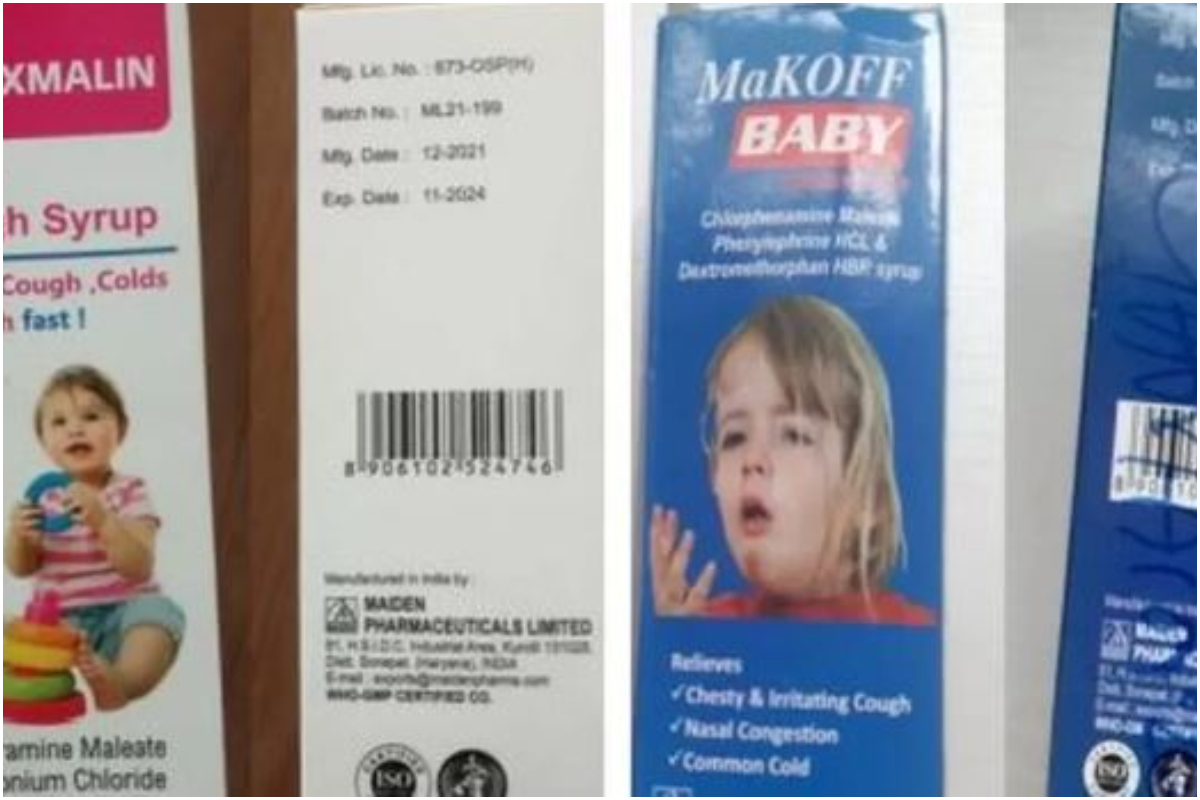Maiden Pharmaceuticals: India justifies cough medicines related to child deaths
Africa receives several generic medications from India. According to India, tests conducted...

Maiden Pharmaceuticals: Gambia panel says Indian firm responsible for cough syrup deaths
A parliamentary committee in The Gambia has recommended legal action against the Indian company that makes cough syrups, which is thought to be responsible for at least 70 child fatalities there.
For exporting what it called tainted drugs, it claimed Maiden Pharmaceuticals should be held liable.
In October, the WHO issued a warning urging authorities to halt the sale of the syrups.
The accusations had been refuted by Maiden Pharmaceuticals.
Government laboratories in India claimed that the syrups “complied with requirements” after testing them. Last week, an Indian official criticised the WHO for being “presumptuous” in condemning the syrups.
The global health organisation, though, told that it was simply carrying out its job and “stands by the action done.”
The Gambian parliamentary committee has recommended that authorities take strict action, including banning all Maiden Pharmaceuticals products from the nation and suing the company, following weeks of investigation.
According to the committee, Maiden Pharmaceuticals “should be held liable for shipping the contaminated drugs” and “is culpable.”
The legislative committee stated in its report that Promethazine Oral Solution, Kofexmalin Baby Cough Syrup, Makoff Baby Cough Syrup, and Magrip N Cold Syrup were tainted with diethylene glycol and ethylene glycol. “The findings remain the same as the prior reports,” the committee added.
Humans are poisonous to diethylene glycol and ethylene glycol, which means ingestion could be lethal. The panel did, however, emphasise that further research was being done to determine the precise scientific cause of the children’s deaths.
The committee also requested that background checks be done on manufacturers, including visits to their facilities, and that all medications supplied into the nation be properly registered.
The research also exposed flaws in the nation’s healthcare system, pushing the government to improve it and give the nation’s hospitals better tools and medications.
The Gambia noticed an upsurge in acute renal injury cases among kids under five in the latter part of July. Later, the government estimated that 69 kids had died as a result of these wounds.
The WHO then issued a global notice after identifying four Maiden Pharmaceuticals drugs as likely responsible for the deaths of the Gambian youngsters.
India announced that it was looking into the items after hearing about them in October and instructed Maiden Pharmaceuticals to halt production at its main unit in the northern state of Haryana.
The samples evaluated at a government laboratory, according to a letter from Dr. VG Somani, India’s medicines controller general, on December 13th, “were found not to have been contaminated” with the substances.
He said, “All the control samples of the four goods have been determined to be compliant with requirements as per the test results received from [the] government laboratory.”
A group of Indian experts are still reviewing the test results.
Last week, a top advisor to India’s information and broadcasting ministry told that the WHO’s accusation that the children’s deaths were caused by cough syrups was “presumptuous.”
The health organisation had “jumped the gun without valid scientific reasons,” Kanchan Gupta said, adding that subsequent inspections, tests, and studies by the notified bodies and technical team of the Government of India had demonstrated that the presumptuous statement made by WHO was false and incorrect.
A third of all pharmaceuticals in the world are made in India, primarily as generic medications.
The “world’s pharmacy,” which is home to some of the pharmaceutical industry’s fastest-growing businesses, provides the majority of the medical needs of African countries.
Catch all the Business News, Breaking News Event and Latest News Updates on The BOL News
Download The BOL News App to get the Daily News Update & Live News.